4 Flavorful Substitutes That Replace Short Ribs
Substitutes for beef short ribs can transform your meal planning when this prized cut isn't available or fits outside your budget.
Facing this dilemma occasionally, cooks find several excellent alternatives with similar rich flavors and tender textures.
The right replacement depends on what qualities matter most to you - whether that's comparable fat content, similar cooking methods, or matching the robust taste profile.
Alternative options range from other beef cuts to completely different protein sources that work beautifully in traditional short rib recipes.
Skilled chefs understand that successful substitution means considering how the replacement will respond to long, slow cooking techniques commonly used for short ribs.
Food enthusiasts might be surprised at how satisfying these alternatives can be when prepared thoughtfully with complementary seasonings and cooking methods.
Ready to see which delicious options could become your new favorite stand-in for this classic cut?
Why Substitute Beef Short Ribs?
Beef short ribs are rich, flavorful, and fall-off-the-bone tender, but they’re also expensive, take time to cook, and aren’t always easy to find:
Tender and Juicy Beef Short Rib Replacements
Beef short ribs not available for your dinner plan can be replaced with another cut that loves slow cooking. The recipe still ends with fork-tender perfection.
Beef Back Ribs
Beef back ribs stand out as top choices for steak lovers due to their impressive size, coming from muscles around the cattle's backbone and cut larger than short ribs.
Despite having less thick meat than short ribs, they still deliver an incredible umami flavor that makes them worth every bite.
Many people enjoy swapping these tasty ribs for short ribs in various dishes.
The swap works perfectly in rice-based meals that need that rich beef flavor.
They also make excellent substitutes in pasta dishes where their robust taste enhances sauces beautifully.
Even vegetable dishes can benefit from the addition of these flavorful ribs to create more satisfying meals.
Beef Chuck Roast
Beef chuck roast makes an excellent budget-friendly swap for beef short ribs while delivering the same juicy, flavor-packed experience in braised recipes.
This affordable cut comes from just above the cow's shoulders, offering rich marbling that breaks down beautifully during slow cooking.
Home cooks on tight budgets appreciate how chuck roast provides that same tender, melt-in-your-mouth quality without the premium price tag.
Many professional chefs actually prefer chuck for certain recipes because of its perfect balance of meat and fat.
Chuck roast works wonderfully with the same seasonings and cooking methods you'd use for short ribs, so no recipe adjustments are needed.
Beef Plate Short Ribs
Beef plate short ribs, cut from the lower rib cage area of the cow, offer exceptional juiciness due to their higher fat content compared to regular short ribs.
The abundant marbling makes these cuts incredibly tender and packed with rich umami flavor that meat lovers crave.
Many people appreciate how this natural fat eliminates the need for additional oil during preparation, actually speeding up the cooking process.
The luxurious texture and deep beefy taste make plate short ribs perfect for slow-cooking methods like braising or smoking.
Beef Shank
Beef shank, while often overlooked compared to more famous cuts, delivers incredible flavor to any recipe at a budget-friendly price.
Many people miss out on this hidden gem since not all stores carry it regularly, making it worth snatching up whenever you spot it.
The rich, deep taste comes from the well-exercised leg muscle, creating a wonderfully intense beef experience once properly prepared.
Patience becomes the secret ingredient when working with this cut since it requires slow cooking to break down the tough connective tissues into melt-in-your-mouth goodness.
Pairing Wine and Side Dishes With Beef Short Rib Substitutes
Serving beef short rib substitutes doesn’t mean you need to sacrifice on great pairings:
Beef Short Rib Substitutes: Expert Answers to Your Questions
1. Are there boneless substitutes for beef short ribs?
Yes, boneless chuck roast, brisket, or country-style ribs provide similar meatiness without bones, making serving easier.
2. Can I use pork ribs instead of beef short ribs?
Pork ribs have a milder flavor and different texture, but can work in many recipes if you adjust seasonings and cooking times.
3. Will substitutes affect cooking times for recipes?
Cooking times might vary slightly, especially if using boneless cuts or leaner meats. Check for tenderness as you cook.
4. Are there budget-friendly alternatives to beef short ribs?
Beef chuck roast or beef shanks often cost less and provide similar tenderness and rich flavor after slow cooking.
5. Can I use lamb ribs instead of beef short ribs?
Yes, lamb ribs can substitute beef short ribs but will add a distinct lamb flavor to your recipe.
6. Are beef short rib substitutes suitable for slow cooking and braising?
Absolutely, chuck roast, beef shanks, and brisket all perform wonderfully when braised or slow-cooked.
7. How should I store leftover cooked beef short rib substitutes?
Store cooked substitutes in an airtight container in the refrigerator for up to four days or freeze for longer preservation.
8. Can I substitute beef stew meat for beef short ribs?
Beef stew meat is leaner and cooks faster. It can be used but expect a slightly less tender result, add extra cooking time for tenderness.

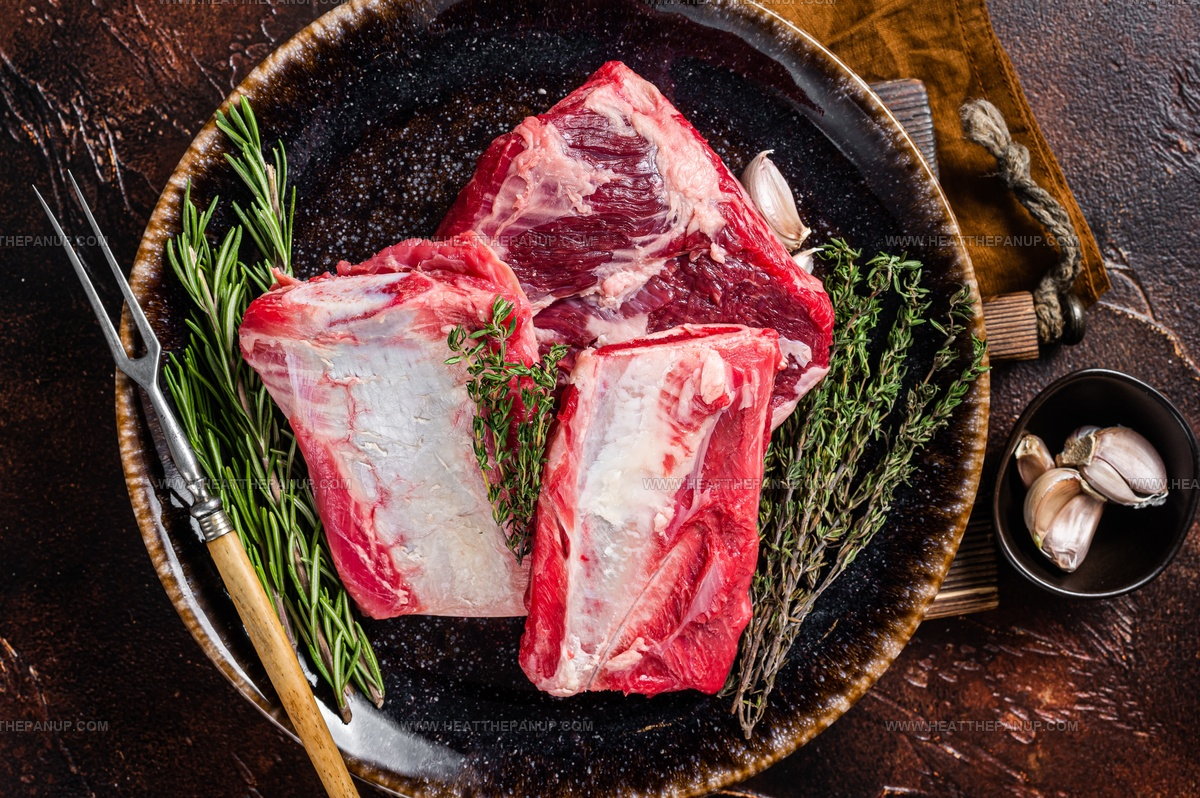
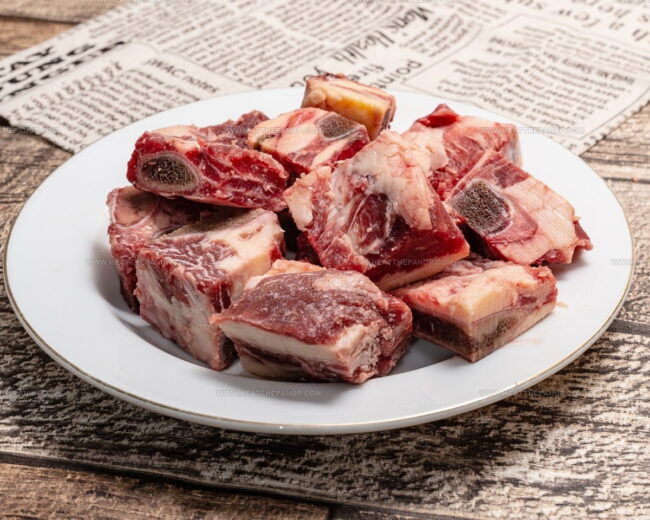
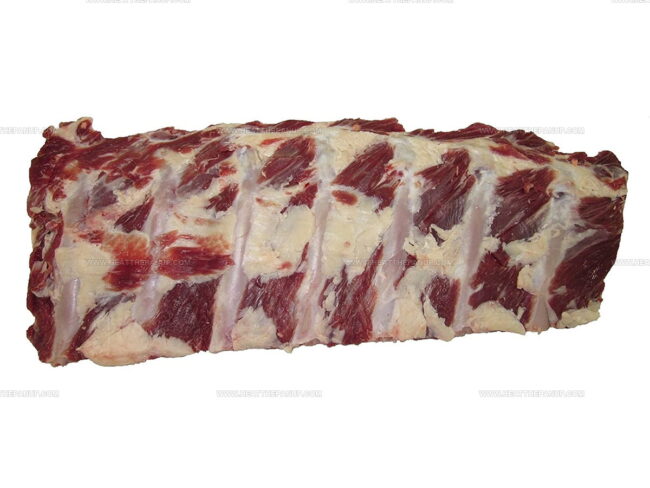
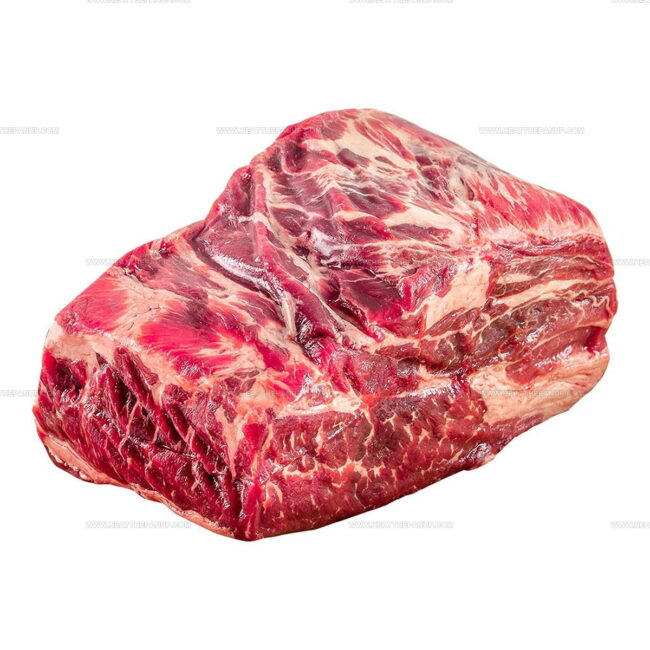
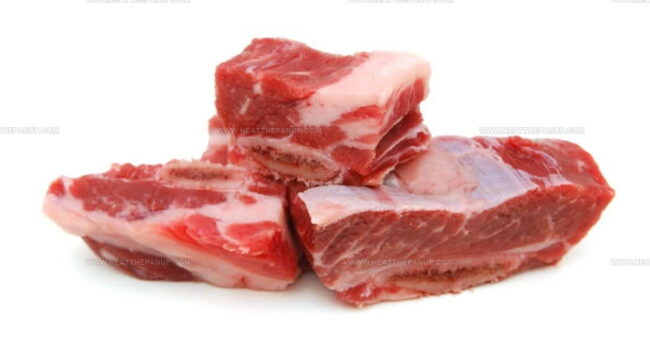
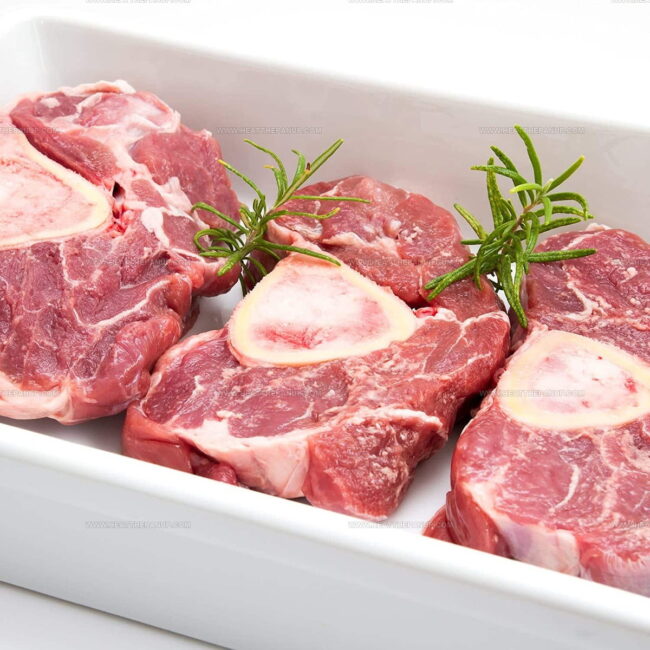
James Hambly
Founder & Recipe Creator
Expertise
Recipe Development, Culinary Education, Farm-to-Table Cooking, Southern Cuisine
Education
Asheville-Buncombe Technical Community College
Certificate in Culinary Arts
Focus: Hands-on training in professional cooking techniques, emphasizing farm-to-table practices and Southern cuisine.
The Chef’s Academy
Associate Degree in Culinary Arts
Focus: Comprehensive culinary education covering global cuisines, kitchen management, and food safety.
James grew up surrounded by the smells of cast-iron skillets and slow-cooked Southern meals in Asheville, North Carolina.
He sharpened his skills with a Certificate in Culinary Arts from Asheville-Buncombe Technical Community College, and later leveled up with an Associate Degree from The Chef’s Academy.
James’s philosophy is simple: the best meals don’t need fancy tricks, just fresh ingredients, a hot pan, and a little bit of heart. His favorite days are spent testing one-pan wonders, chasing bold flavors, and creating recipes that feel easy, even on a busy night.